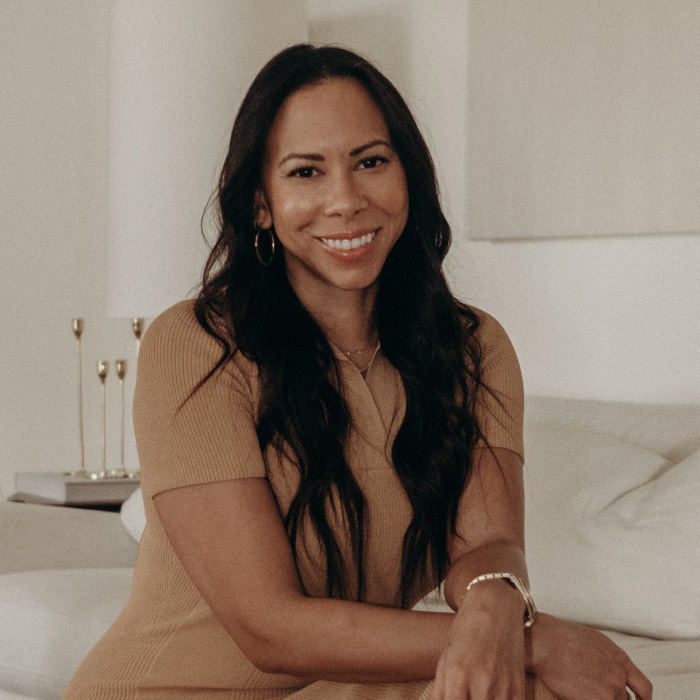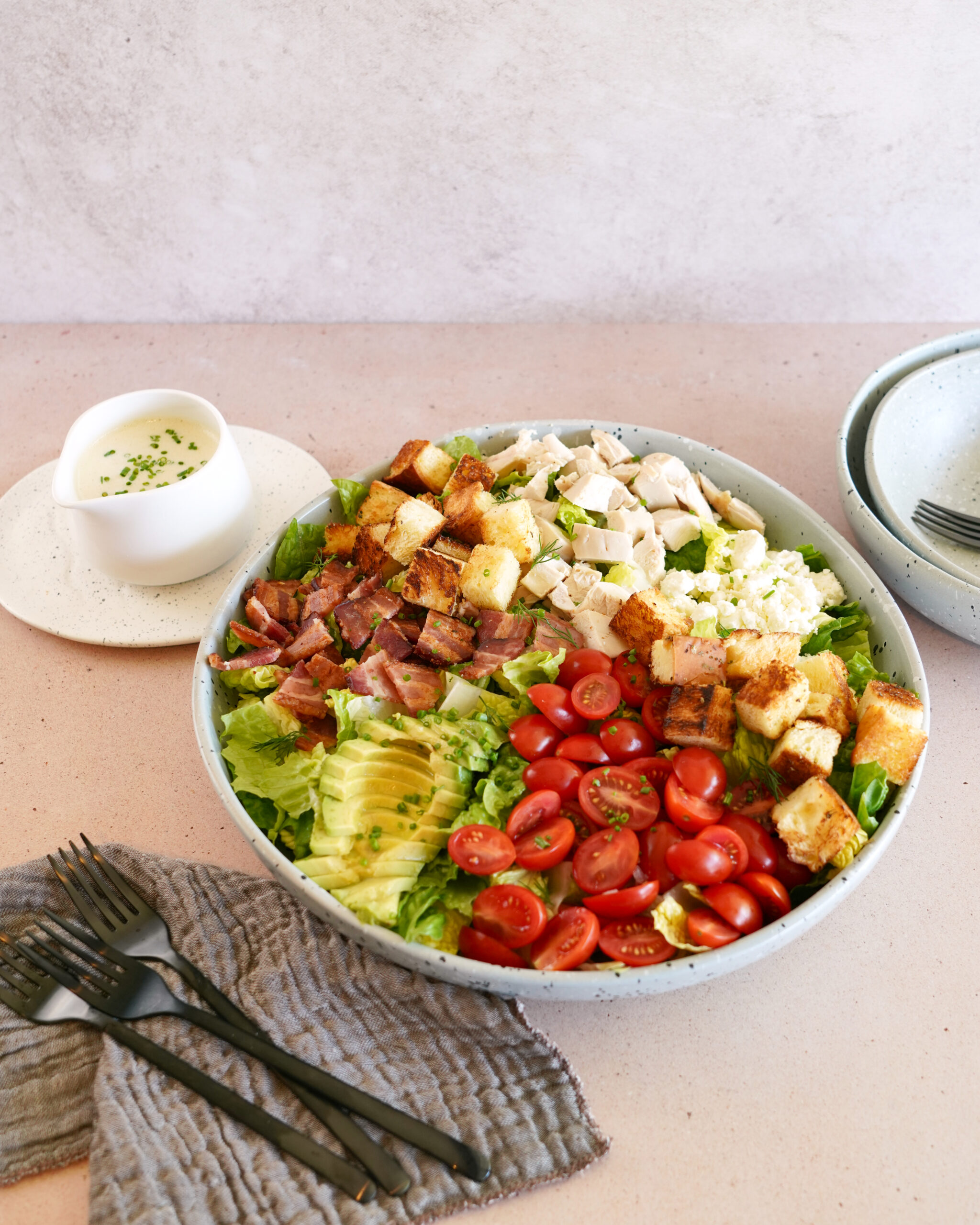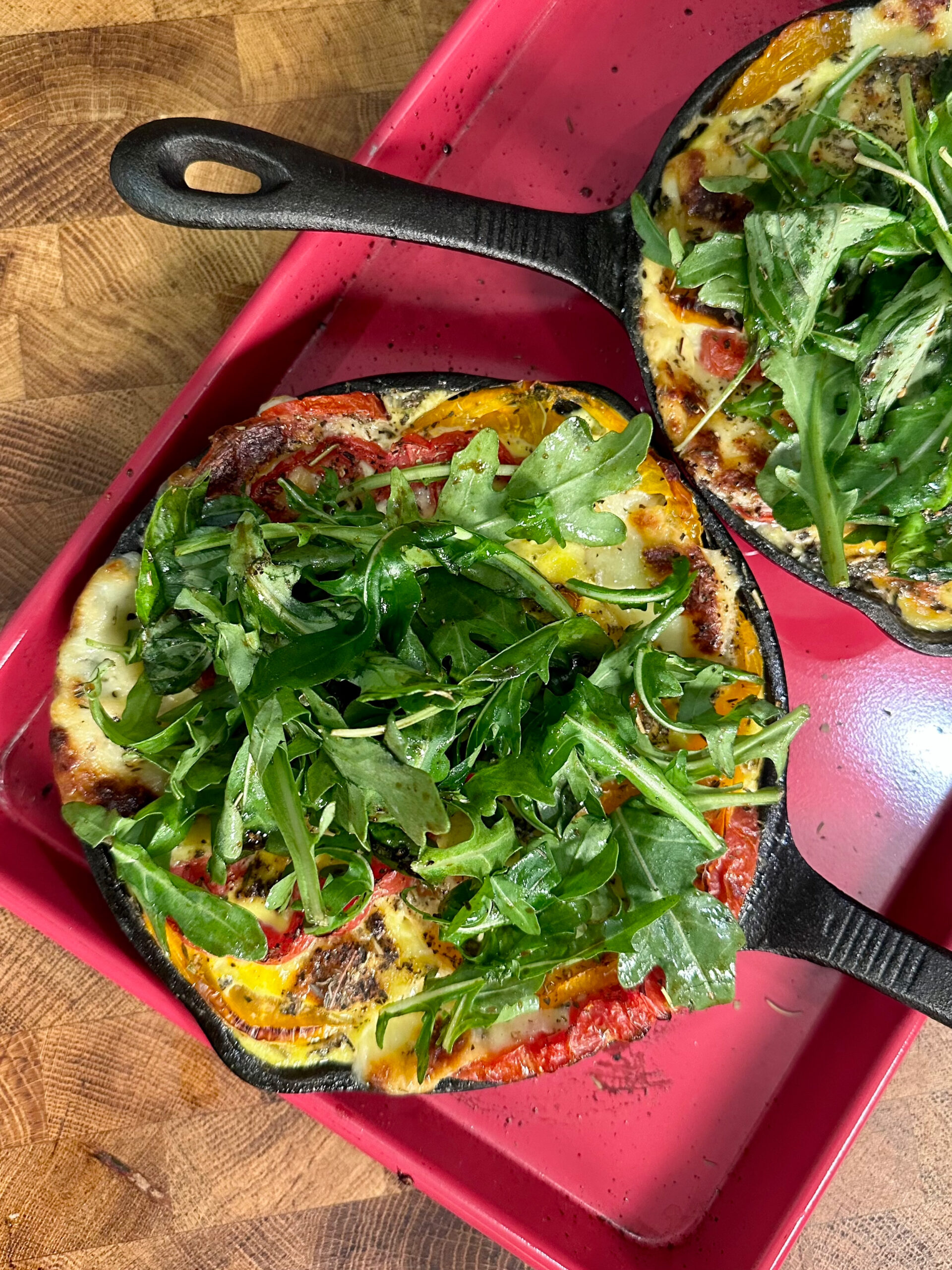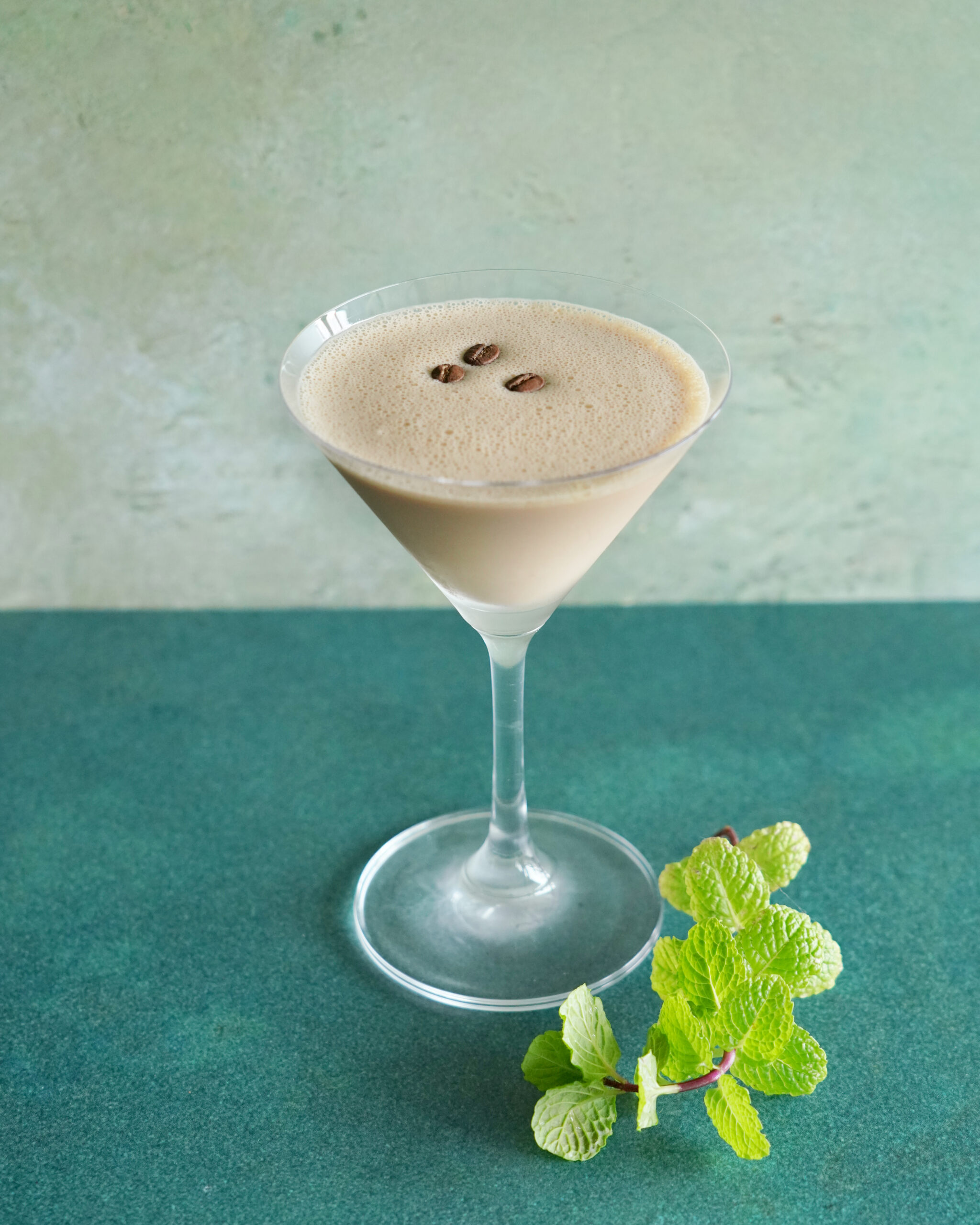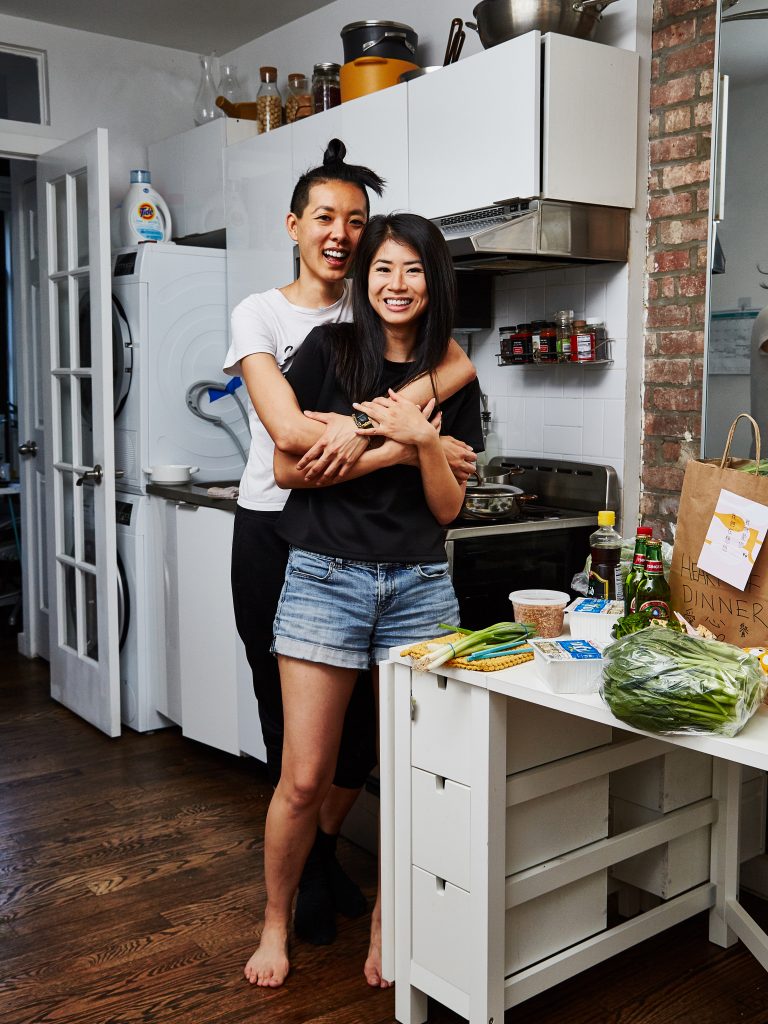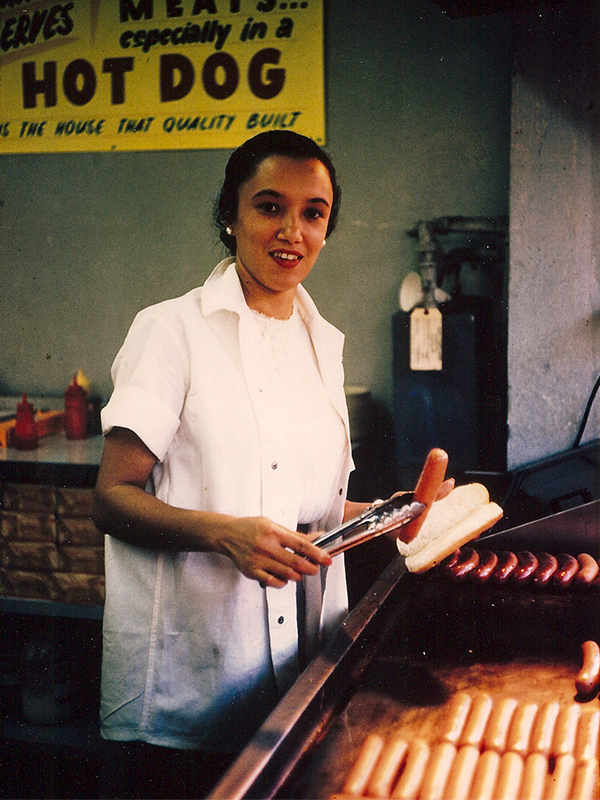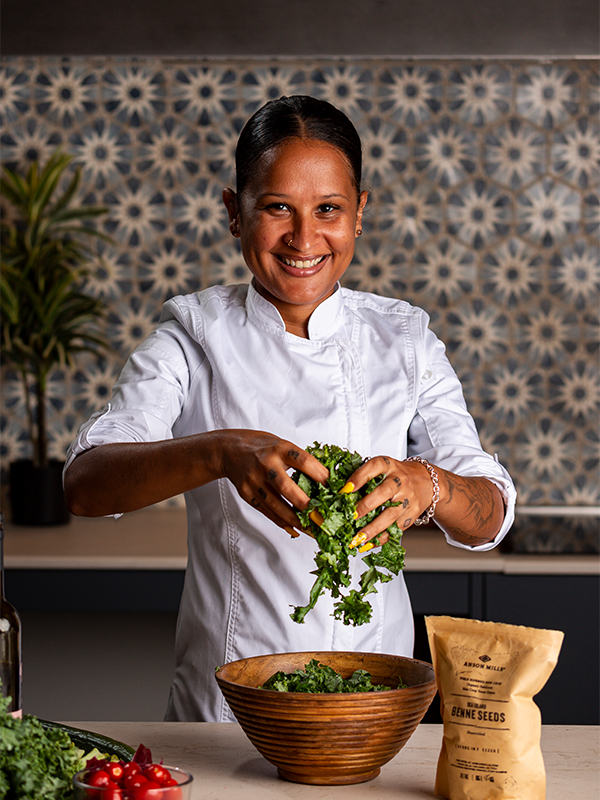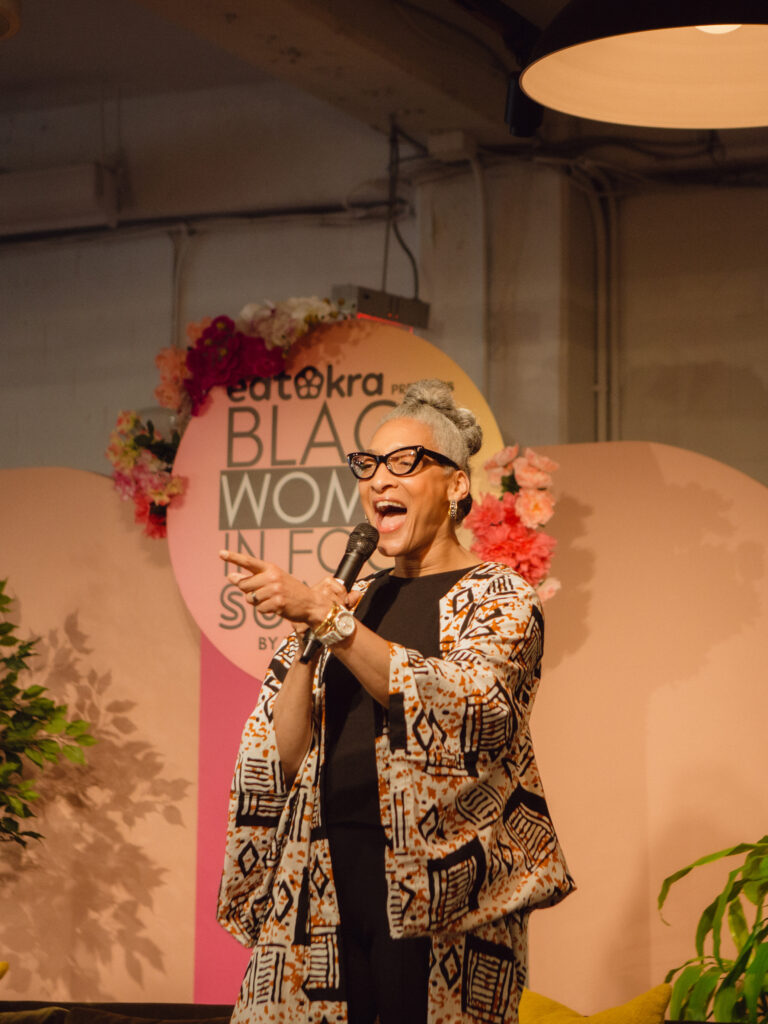They say that the best inventions are born out of necessity. This sentiment captures the spirit in which the award-winning app EatOkra (a name that highlights okra as a homage to the African diaspora) was created.
When EatOkra co-founder and COO Janique Edwards moved to Brooklyn, New York, in 2016 with her husband Anthony, she immediately sought out Black-owned businesses and restaurants to patronize, but when the results of that search proved to be lacking, the spark for EatOkra was lit. “The app came about organically as a need for us to find dining,” says Edwards, who serves as COO for EatOkra alongside her husband, the company’s CEO. “I didn’t know much about the borough or community. I wanted to support Black-owned businesses, because, for me, Black-owned businesses, especially restaurants, reflected and housed the elements of Black culture that I was seeking to feel a sense of connection to what was going to be my new home.”
“[EatOkra] represents our vision for a more equitable society. When local businesses thrive, the communities around them are impacted in a positive way.”
Edwards recalls that while she was pleasantly surprised by the variety of Black-owned businesses that her research yielded, she believed the search shouldn’t be so laborious. “I was frustrated by how difficult it was to identify [Black] businesses online,” she says.
But the importance of the EatOkra app goes beyond seeking out restaurants. “It represents our vision for a more equitable society,” says Edwards, who still resides in Brooklyn with Anthony and their daughter Bradley. “When local businesses thrive, the communities around them are impacted in a positive way. Healthy Black-owned businesses are a good thing for our communities, but we all know that there are many institutional barriers that make it difficult for Black businesses to even survive, let alone thrive. We believe that people want to make spending choices that align with their values, and if you’re a person who believes in fairness and cultural diversity, then EatOkra makes it easier for you to tap into that.”
Since launching in 2016, EatOkra has already made quite the impression. The app won a coveted Apple “Trend of the Year” Award last year for successfully connecting people in meaningful ways, something that Edwards says has bolstered the company’s next steps. “It really validated our vision as a tech company in a totally different way. When we started, one of the first interview questions we had to answer was, ‘Do people care if a business, especially a restaurant, is Black-owned?’ and, for a while, we were laser-focused on proving that it’s definitely something people care about.” The app has brought in 400,000 downloads, which Edwards says “stands as proof that people absolutely care.” But, she adds, “winning an award from Apple, which is widely considered the #1 innovative company in the world, really added another layer to the substance of that claim.”
Edwards says the company has plans to grow upon this success. “In 2022, we’re working on a native ordering feature that will allow people to place orders through the app,” says Edwards. “We’re also working on developing a native marketplace, and we’re exploring digital and written storytelling, which will live exclusively on the app.”
“What we’re trying to do is play a small role in this economic shift where consumers understand that they possess the power to evoke the change they want to see in their communities and society as a whole.”
With the help of their partner Jason Wallace, a graduate of the Culinary Institute of America, a former chef, educator and a restaurant consultant for more than 15 years, the EatOkra team also wants to extend its offerings with the creation of an e-learning platform. “With [Jason’s] guidance, we’re working on building a resource hub that our restaurant members can tap into for downloadable content, one-on-one coaching and access to lending networks to help with things such as business planning, accounting, fundraising, marketing and general management,” says Edwards.
“Naturally, we felt that as a brand, we needed to show growth in our advocacy,” the couple shares. “What we’re trying to do is play a small role in this economic shift where consumers understand that they possess the power to evoke the change they want to see in their communities and society as a whole.”
When asked if they could help identify any trends in the industry for 2022, the pair willingly serves up some enticing forecasts. “One of the food trends we think we’ll continue to see going into 2022 is fusion concepts,” they predict. “We believe we’ll see even more restaurateurs and chefs taking elements from their culinary roots and combining them with techniques and cultures they’ve been inspired by through their studies and travels.”
For example, they point to Vinatería, a Black-owned restaurant located in Harlem that serves cuisine inspired by both Spanish and Italian cultures. A few blocks down, there’s FieldTrip—a fast-casual concept created by award-winning chef JJ Johnson, which explores and celebrates the global cultural impact of rice. There’s also Le Succulent in Brooklyn, which combines traditional Cameroonian dishes with French cuisine.
“We’re still learning a lot about the food space, but we do know that Black food, much like Black people, is not a monolith, and so one of our goals for 2022 is to really study and explore the diversity of Black food culture a lot more as a part of our personal growth and the growth of the EatOkra.”



